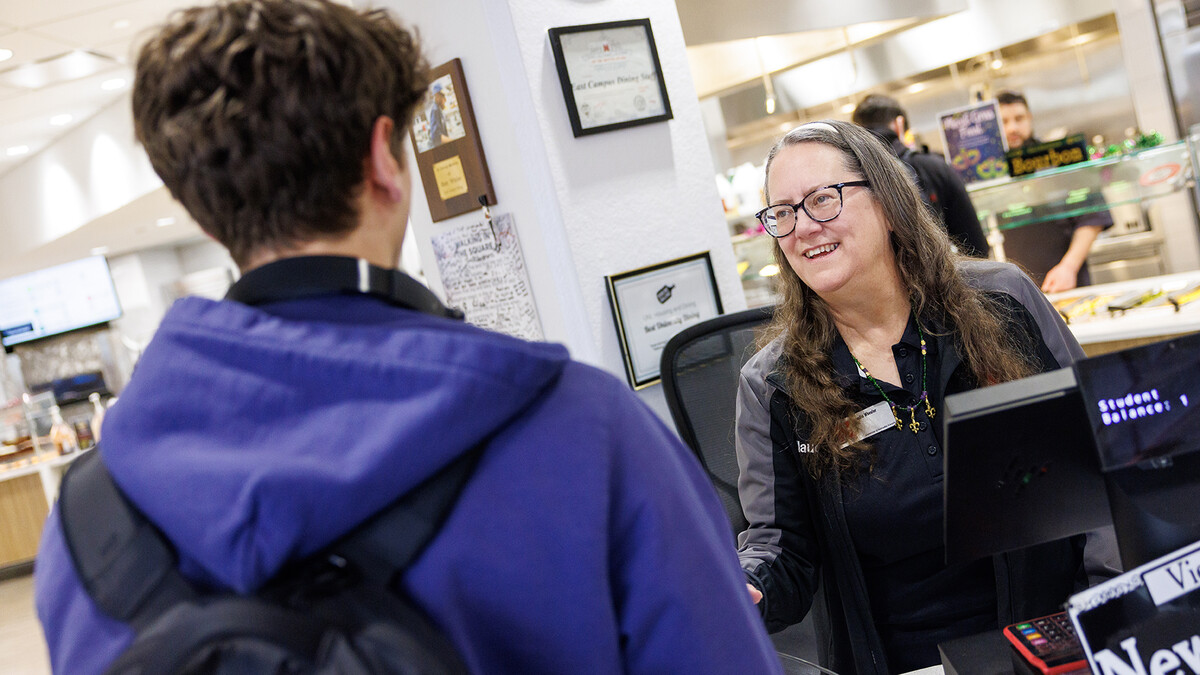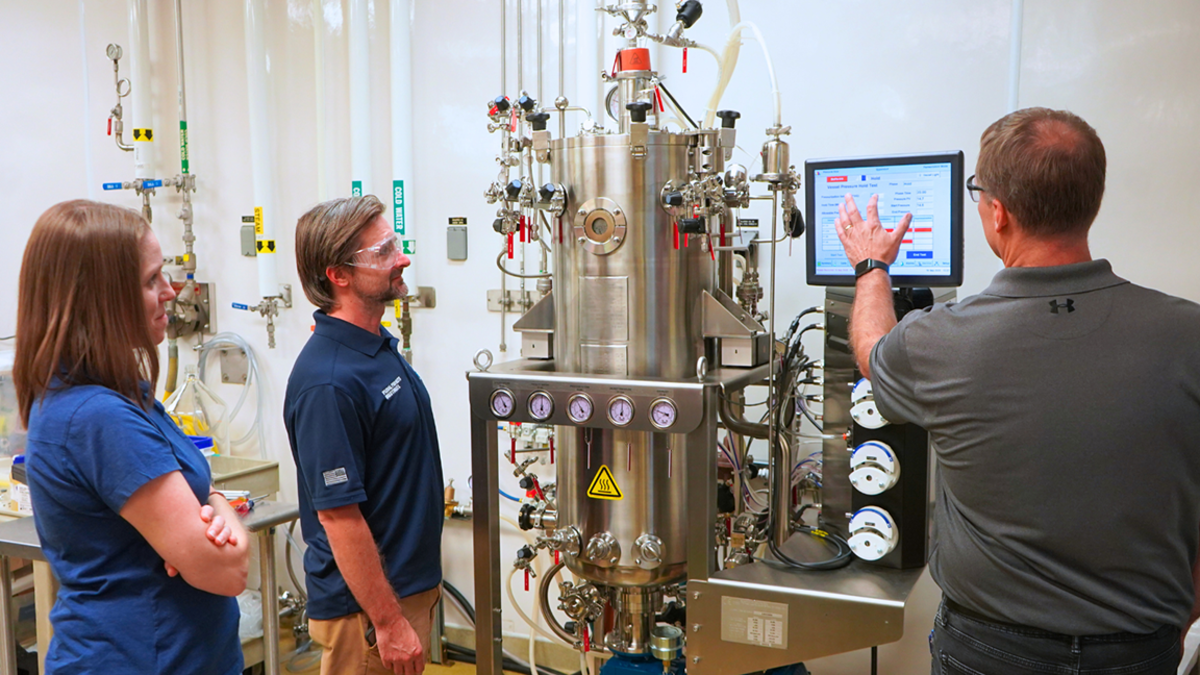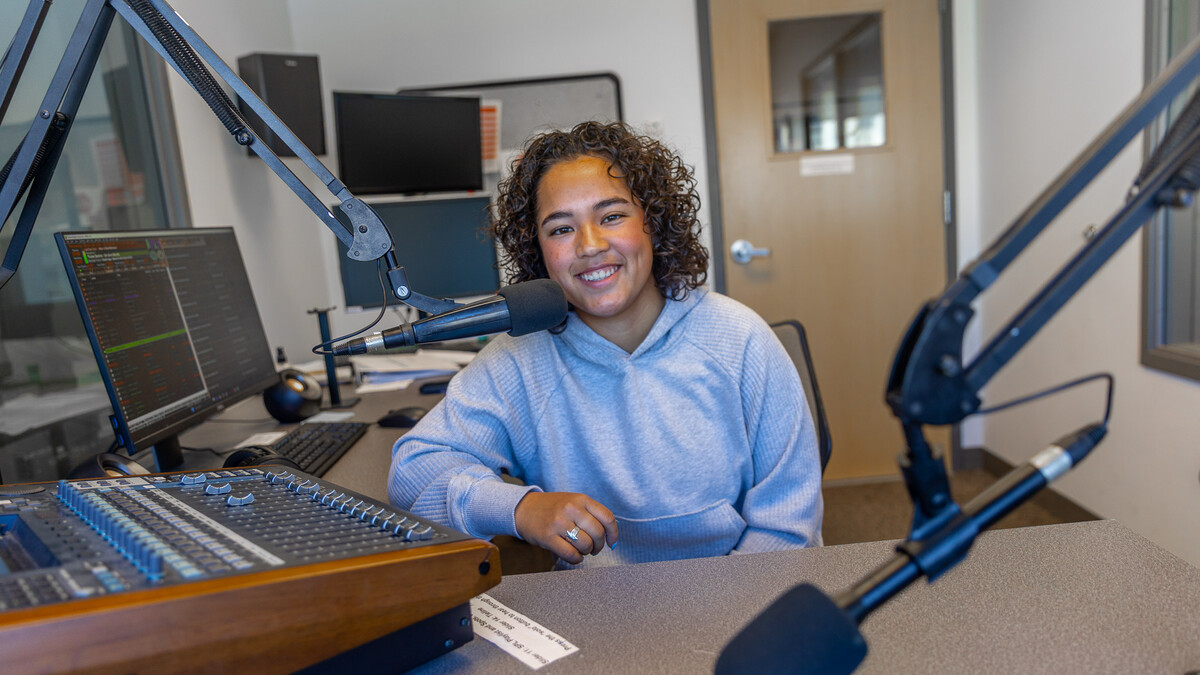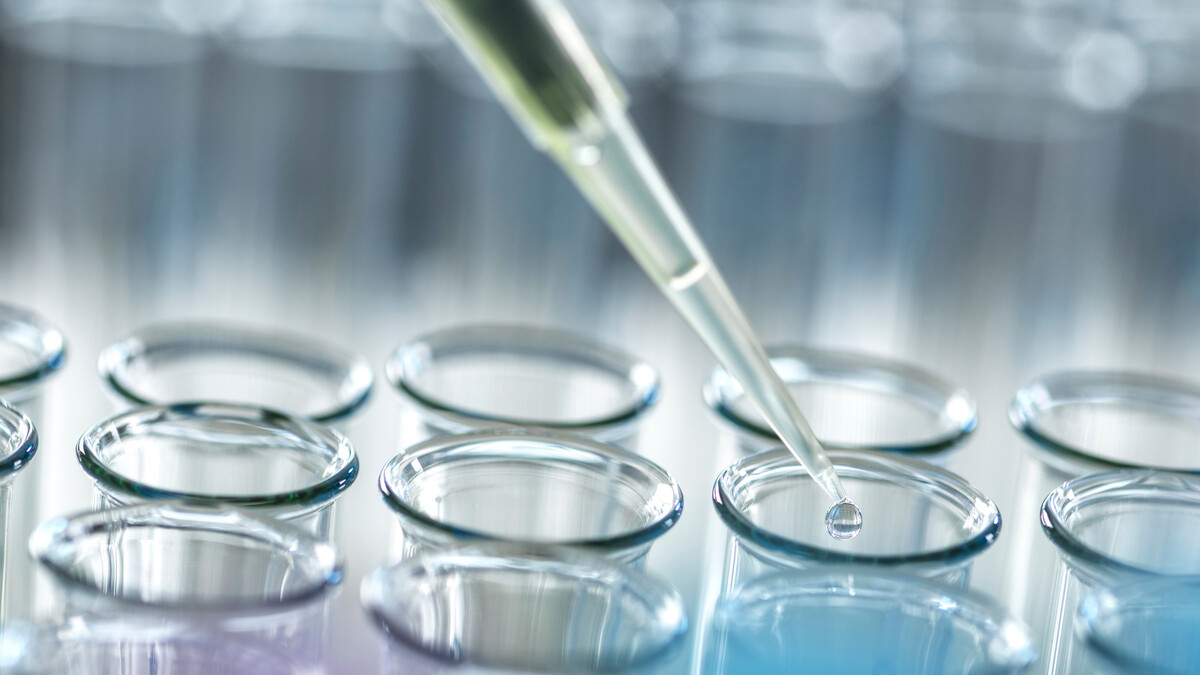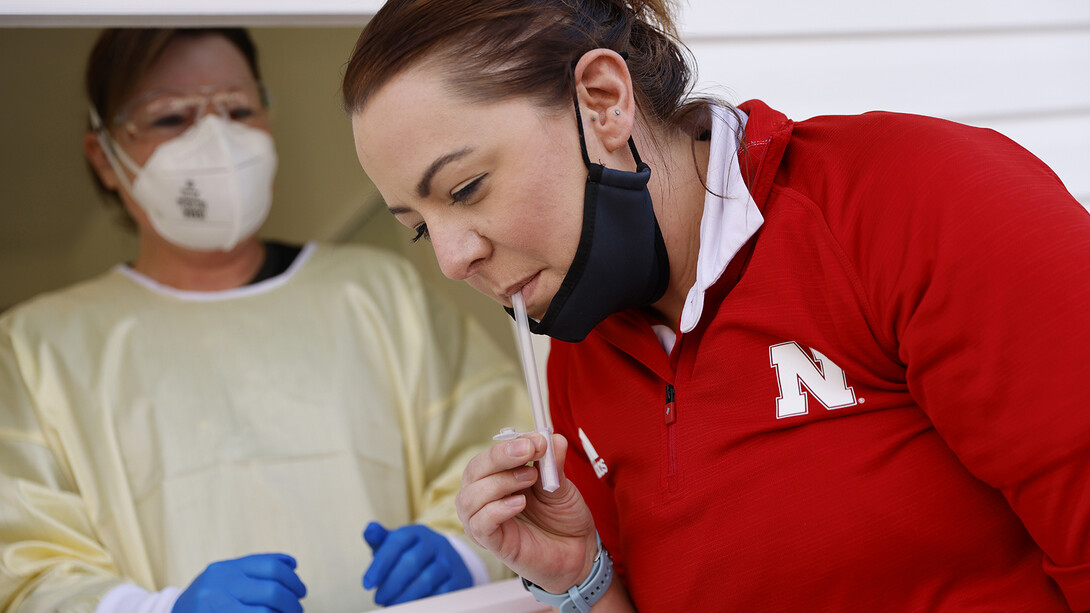
To offer in-person instruction in the spring, the University of Nebraska–Lincoln is planning a multi-layered, mandatory COVID-19 testing program for students, faculty and staff.
Announced Dec. 9, the saliva-based diagnostic testing program will be managed by the university through lab space in the Veterinary Diagnostic Center. It will offer multiple collection sites on City, East and Nebraska Innovation campuses; expected 24-hour return time on results; and a smartphone app that will permit access to campus buildings.
The free testing program follows recommendations made by the Lincoln-Lancaster County Health Department and is supported by the executive team of the Association of Students of the University of Nebraska.

Chancellor Ronnie Green said the mandatory testing and related protocols will help the university build upon success realized while offering in-person instruction in the fall.
“We remain committed to safely providing in-person educational experiences and to continuing our critical research and creative activity, as well as our vital outreach across Nebraska,” Green said. “These additional measures will help make our spring semester even more safe and successful.”
The testing program is required for faculty and staff who plan to come physically to the Lincoln campuses; students attending in-person classes; and all students living in Lincoln or Lancaster County, including those who are taking only online courses.
University employees not physically coming to the Lincoln campuses are not required to participate in the mandatory testing program. However, they must get tested within two weeks, ideally two to three days before, accessing any campus facility.
Exemptions will be available to those who have tested positive for COVID-19 in the previous 90 days and to those who have a substantiated medical reason for an exemption.
All members of the campus community will be tested prior to the start of classes on Jan. 25 and every two weeks thereafter. Anyone who is required to take part in the testing program but fails to follow protocols will not have access to campus buildings and may face disciplinary action.
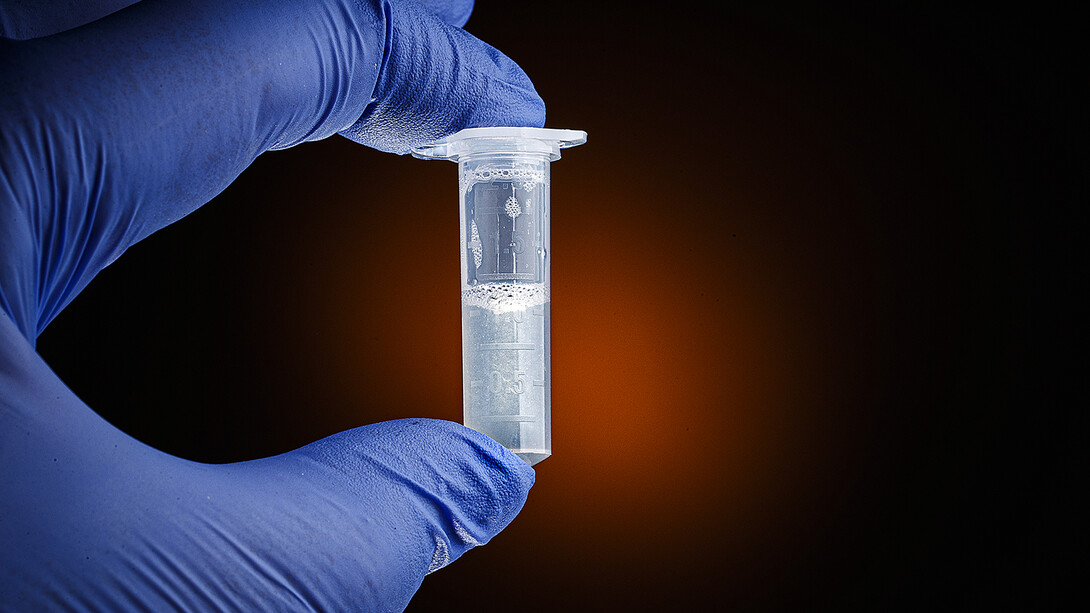
The university is working with Big Ten colleagues at the University of Illinois to finalize a smartphone app that will connect to individual testing results. Students, faculty and staff will use the app (or a printable option) to show a negative test result to wellness attendants stationed at campus building entrances. The wellness attendants will not grant access to any student, faculty and staff who are unable to show a current test result or those who test positive for the virus.
Students will also be required to complete the Spring 2021 Cornhusker Commitment, which is an affirmative agreement to adhere to the university’s testing program and health/safety measures. The updated Cornhusker Commitment is available for review online and will be available in MyRED for completion in January.
University leaders are also seeking members of the campus community who could temporarily redeploy and help staff testing sites, diagnostic center and conduct contact tracing.
“Standing up this capability is a major undertaking, and we need immediate staffing help,” Green said. “These are temporary assignments ranging from one to more than four months depending on the role and availability of the individual.”
Employees must get supervisory permission before pursuing a redeployment to assist with the testing program. Some positions are open to student workers. Learn more about the work and positions available.
Additional details about the spring semester’s testing program and app will be announced in January. Available information, including a list of frequently asked questions, is available on the university’s COVID-19 website.
